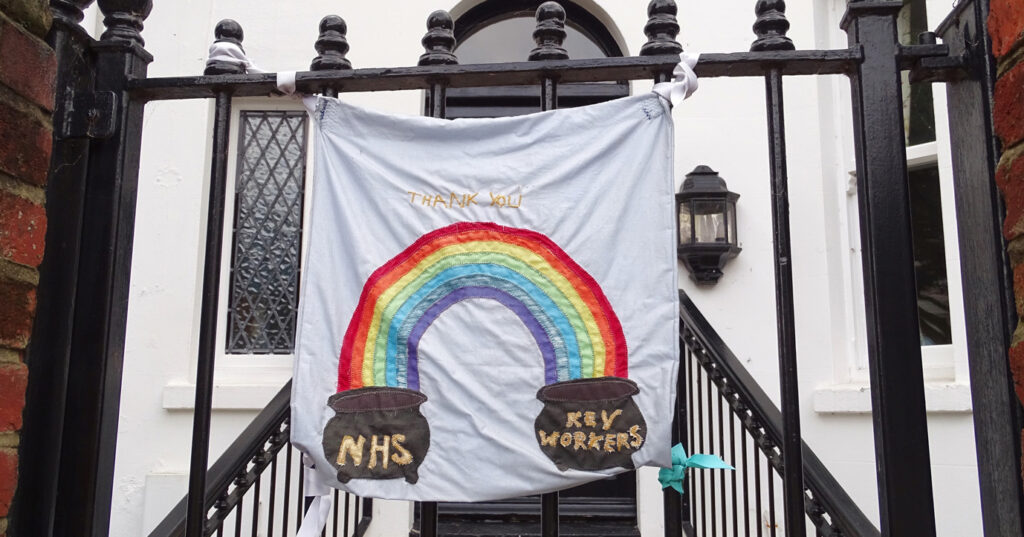
My new book, published tomorrow, could be my most controversial yet.
No, not that one. I mean Life Support: The State of the NHS in an Age of Pandemics. In it, my co-author Isabel Oakeshott and I ask hard questions about how good the National Health Service really is, and what needs to change if it is to offer the consistently high quality of care that patients and taxpayers deserve.
An objective study of a public institution ought not to be controversial, but any attempt to offer an unvarnished view of the NHS today will inevitably be seen in some quarters as an attack. Life Support is no such thing, of course. (After all, I spent a year campaigning, successfully as it turned out, for a rare collective award of the George Cross for the NHS and its staff). Nor is it an argument for doing away with the principle that services should be free at the point of delivery, which would be politically impractical even if I thought it a good idea, which I don’t. Rather, it is a rigorous study of the NHS as it really is today – the good, the bad and the ugly – based on detailed on-the-ground research and hundreds of interviews with health professionals and others.
The political danger of being seen to criticise the NHS is one reason why any bold and positive change is so hard – and why extra funding, promised on a lavish scale by this Conservative government out of the proceeds of its hefty new taxes, so rarely goes hand in hand with the kind of reforms that would help deliver real value.
Another closely linked reason for this is fear of public opinion. But I believe the voters’ relationship with their health service is more nuanced than is sometimes understood. In the course of my work on Life Support I conducted two major polling exercises – one just before covid struck in early 2020, and the other towards the end of 2021 after restrictions had eased. The results, available at LordAshcroftPolls.com, show how little people’s big-picture views of the NHS change, even over an 18-month period with a global pandemic in between. They also help explain how the public feels about its favourite institution, and why politicians have been so reluctant to address the problems that beset it.
Though it is practically an article of faith among the British public that the NHS is in a sorry state, this is not always based on personal experience. In both my surveys, people gave a more positive rating for their own most recent encounter with the NHS than they did when asked how good or bad they thought NHS services were in the country as a whole. Indeed, those who had had very frequent contact with the NHS gave a higher mark than those who had not used its services in the previous six months.
Its response to covid was widely and spontaneously praised. Overall, I found people were slightly more likely to think the UK in general had handled the pandemic worse than other countries than to think it had done better. But asked how the NHS had done, people were four times as likely to say it had performed better than other countries’ health systems than the opposite. Most felt the NHS, with staff working around the clock and risking their own health to care for the suffering, had acquitted itself admirably. They were more inclined to think the pandemic had shown how good the NHS is and why it is the right system for Britain than to believe it had highlighted the need for serious reform.
Even so, most believe the NHS is in a worse state than it was before the crisis began. Few thought the backlog caused by covid – acknowledged as the most serious problem now facing the service – would quickly clear. The prevailing view was that the pandemic had magnified existing problems and that things were unlikely to improve any time soon.
Both before and after the virus struck, waiting times for appointments and treatment were considered top of the list – though some had recently begun to feel that covid was sometimes now being used as an excuse rather than a genuine explanation for delays.
Next in the catalogue of perceived problems for NHS patients were standards varying widely between different hospitals and areas of the country, patients being denied drugs or treatment that could help them, and poor communication. The list of gripes was echoed and expanded in my focus groups, with anecdotes to illustrate each shortcoming.
Yet people are remarkably forgiving of their bad experiences, because of the pressure they can see the service is operating under – not least a chronic shortage of staff. These in turn are widely assumed to be a consequence of continual underfunding. Despite the torrent of cash unleashed during the pandemic and the projected £12 billion a year from the new Health & Social Care Levy, I found more people thinking NHS spending over the last five years had fallen than that it had risen (though by a smaller margin after the crisis than before). It was clear from focus group discussions that people simply do not know what to make of NHS funding, even when hard figures are attached. The issue belongs squarely in the realm of political claim and counterclaim. The feeling is that even if the NHS’s budget is rising – a doubtful enough supposition for some – demands on its resources is rising even faster.
Arguably, all the problems people readily describe – demand constantly outstripping supply, insufficient staff to keep up, missed but uncancelled appointments, overburdened GPs, long waits, administrative bungles – stem from the characteristic that British people most value about the NHS: that it is available to everyone and free at the point of use. For voters, this founding principle remains inviolable. In both my polls, clear majorities agreed with the statement “It is more important to keep the principle of an NHS funded by taxation and free at the point of use even if a different system could mean improvements in treatment and better survival rates for serious conditions”. Only just over one in five agreed with the opposing contention that “It is more important to have the best possible treatment and improved survival rates, even if that means the NHS is no longer funded by taxation and free at the point of use.”
Despite its well-known failings, people will often still say that the NHS is the best health service in the world. But people who say this don’t mean they are convinced the NHS offers the best treatment and produces the best outcomes (which would be a hard proposition to defend on any objective analysis). They just mean that they would rather have the NHS than any other system they can think of. People accept that a free and universal system involves some compromises in terms of quality, but they are compromises they are prepared to make.
The reason may lie in what behavioural economists call prospect theory. When faced with choices that might lead to potential gains, people will tend to be risk-averse, preferring the certainty of keeping what they already have – in this case, what one of our focus group participants rather brilliantly called the “psychic assurance” that the NHS will be there for them whatever their circumstances.
This also explains why ideas for reform are always met with suspicion. For example, many people’s unease about more private firms delivering NHS services is not down to ideological horror at the profit motive so much as the fear that this will somehow inevitably lead to patients one day having to pay. Government-imposed targets might bring down waiting times, but what if they just encourage corner-cutting and box ticking? Encouraging hospitals to innovate might lead to improvements, but what if it just makes services patchier? More choice for patients might drive up standards, but what if I choose the wrong place and lose out?
When you ask the public about the NHS, these are some of the things you will hear. Together with an understanding of the part the institution plays in the national psyche, they help explain why the NHS perennially tops the charts of voters’ worries. As the NHS emerges from the pandemic with record waiting lists, those worries are as great as ever. But the fact that people accept the inevitable compromises of a free and universal health system does not mean the compromises they are now having to make are acceptable. For the right change to be identified, we need to define where we are. That is what this book seeks to do.
Life Support: The State of the NHS in an Age of Pandemics by Michael Ashcroft and Isabel Oakeshott is available to order from Biteback Publishing
- Download a summary of the poll results
- Full data tables – March 2020
- Full data tables – November 2021
For more information, visit:
LordAshcroftPolls.com


